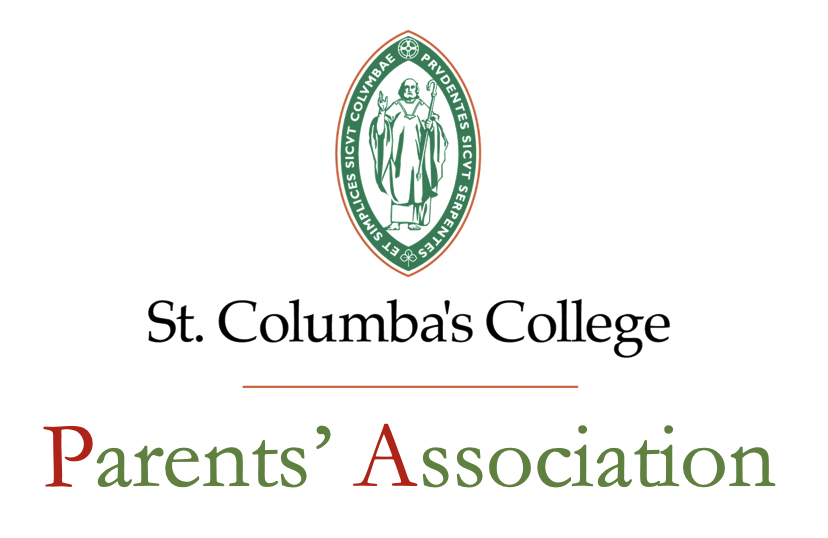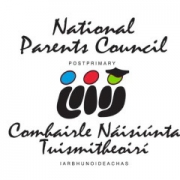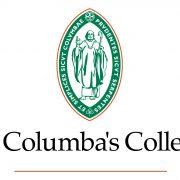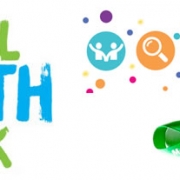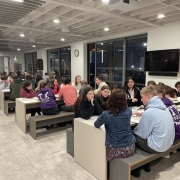A Parent’s Thoughts on Covid19
In COVID-19 times can we still look at the bright side of life? Thoughts by Marc Kaptein, Parent and Medical Director, Pfizer the Netherlands

Dear fellow parents of SCC students, the last couple of months have been a rollercoaster for all of us; children had to leave school in March, parents had to adapt quickly to that reality, children were attending classes remotely, SCC staff had to adjust to online teaching and prepare for the return of students in September. Now that our children have returned to school we need to accept that, despite all measures, staff or students may be infected with COVID-19(if even the president of the USA gets it…) and quarantines are warranted by the Irish authorities. My daughter Julia who, after a “close contact”, tested negative to our relief, is quarantined until October 8th. Despite this quarantine situation I want to quote the lovely German couple that accommodated her; “without this situation we would have never met!” So, always look at the bright side of life!
That’s great, but how and when can we return to pre-COVID normality, you may ask. Basically, there are three scenario’s possible. Firstly, the virus can no longer be contained, a large majority of world citizens will get contaminated, many will get seriously ill and millions die. The end result will be that group immunity is achieved and the virus slowly fades out. This scenario, while I’m writing it down, is not only scary but also unacceptable to me.
The second scenario hinges on significant scientific progress of the treatment of COVID-19 patients above and beyond the current options; virus inhibitors, immune system modulating medication and blood thinners. This would allow for the virus to go around the world population without the devastating effect and reach the much desired group immunity. Unfortunately new drugs, that would make this scenario a realistic option, won’t be available before the end of 2021 (if ever) and health care systems may collapse under the massive patient demand.
The third and most likely scenario in my opinion, is a safe and effective vaccine or, even better, vaccines. This, I guess, is also a good moment for my disclaimer; I am working for Pfizer, so my knowledge is specific to the vaccine we’re developing. Please understand that my view is coloured by the information I have access to. Working in the pharmaceutical sector I am convinced the first corona vaccine may be approved just before or after New Year. However, may I remind you, I always look at the bright side of life!
A question I often get is; how did you guys get your vaccine developed so quickly -and- can we be sure that it is rigorously tested and safe? I will try to answer those questions by pointing out a few key factors that have helped in achieving the almost impossible.
Firstly, the vaccine Pfizer/BioNTech has developed is a so-called mRNA vaccine. The key difference with other vaccine technologies is that the “vector” which is the vehicle that gets the “pay load” (Corona spike protein or genetic mRNA code for that spike protein) into the cell is a fully synthetic, non-pathogenic nano particle, not an inactivated virus. Because we don’t need to produce these “vehicle” viruses in mammalian cell cultures in large bio reactors (which is a tricky and time consuming process) in massive quantities we’ve been able to produce candidate vaccines for testing months quicker. Secondly, we’ve chosen to do multiple steps in parallel. For instance, we’ve combined phase II and III clinical trials and we’ve started manufacturing of the vaccine before we’ve been granted approval. This saves years in development and manufacturing time. Although these decisions increase the financial risks (in case of failure) it does not affect patients safety or rigorousness of our clinical trial program. Thirdly, governments worked alongside with us to accelerate approval processes. Both EMA and FDA have decided on so-called “rolling reviews” which means that they will review data when available rather than waiting for us to submit a full dossier. This saves up to 9 months compared to regular approval processes without affecting the objectivity or rigor of the process.
My personal experience over the last couple of months has been that impossible things were done in days and little miracles in weeks. Unlikely partnerships were forged and friendships started. This also holds true for SCC, we can only overcome this extremely challenging period together. With my own eyes I’ve seen the extraordinary amount of work that Mark Boobbyer and the COVID team have put in to prepare and find solutions for each and every unique students problem or situation. Without COVID-19 I would’ve never been in close contact with the COVID team at school. So I stand with my motto; always look at the bright side of life! I hope you do too!
Marc Kaptein,
Medical Director
Pfizer the Netherlands

